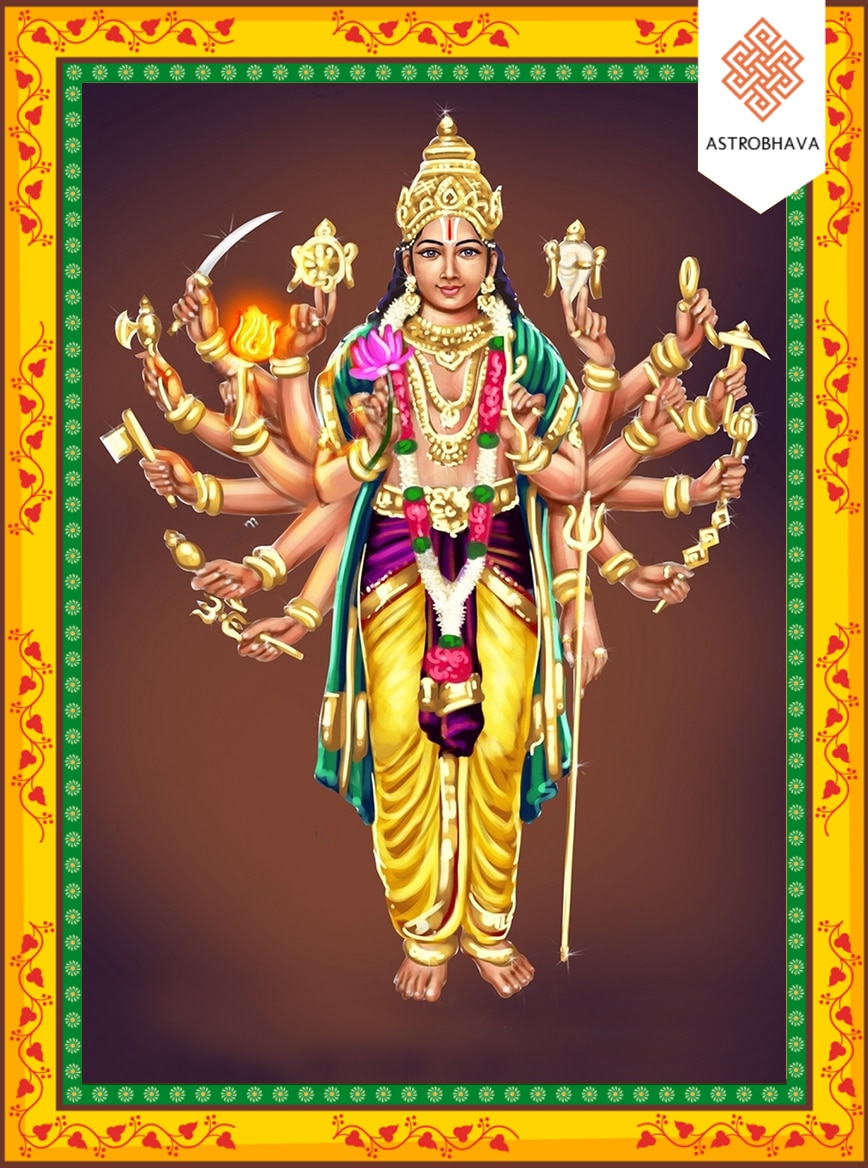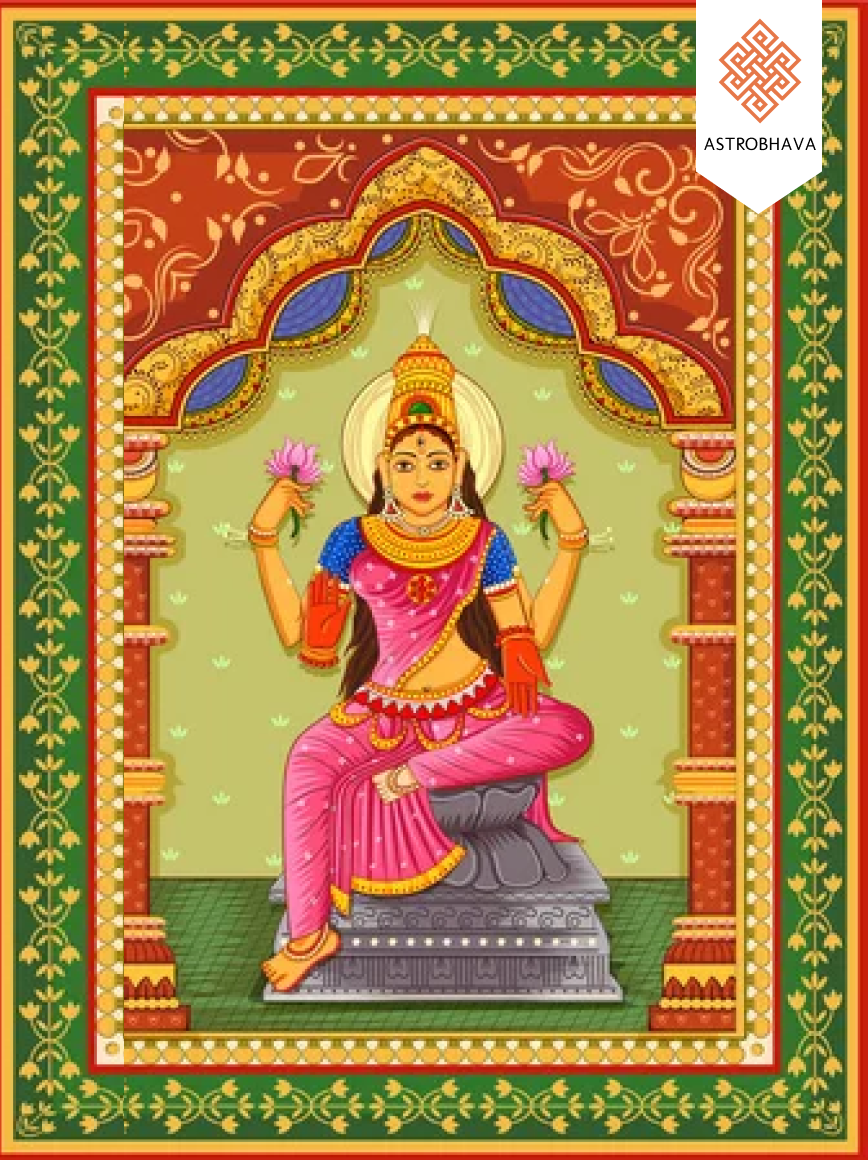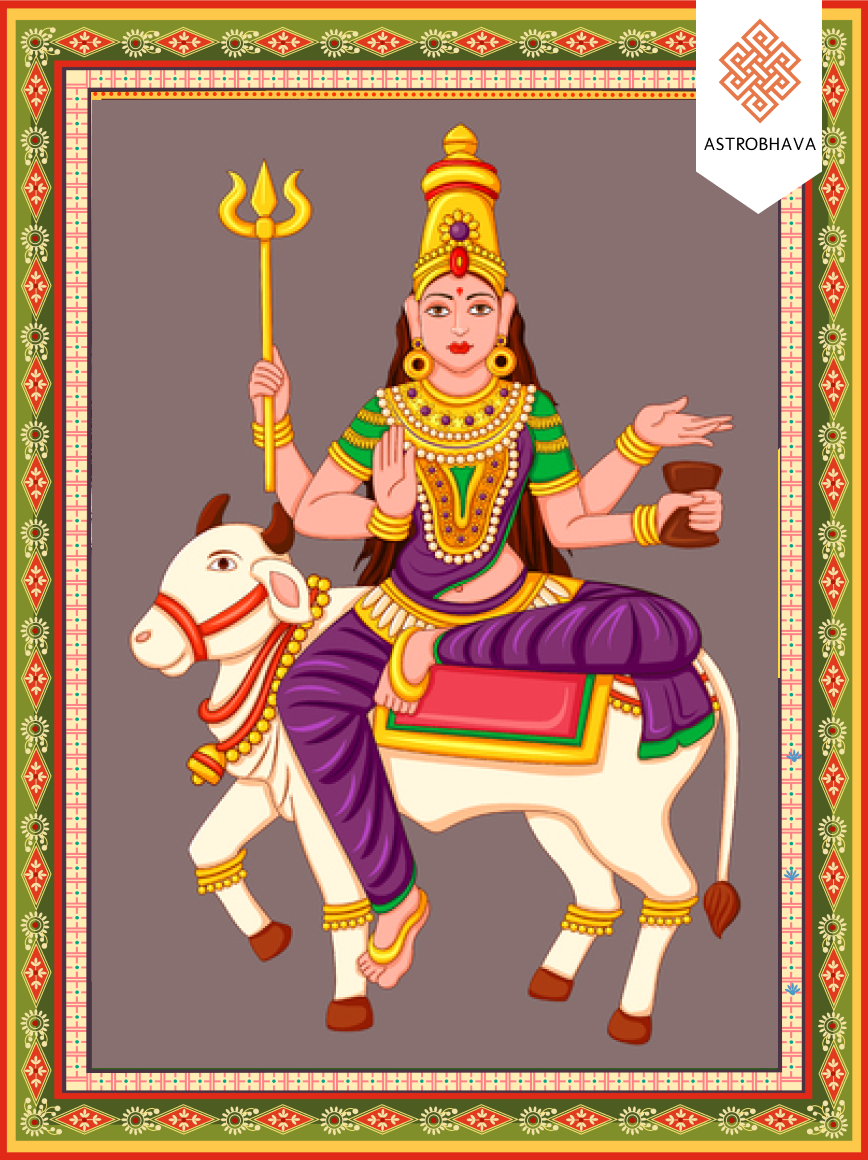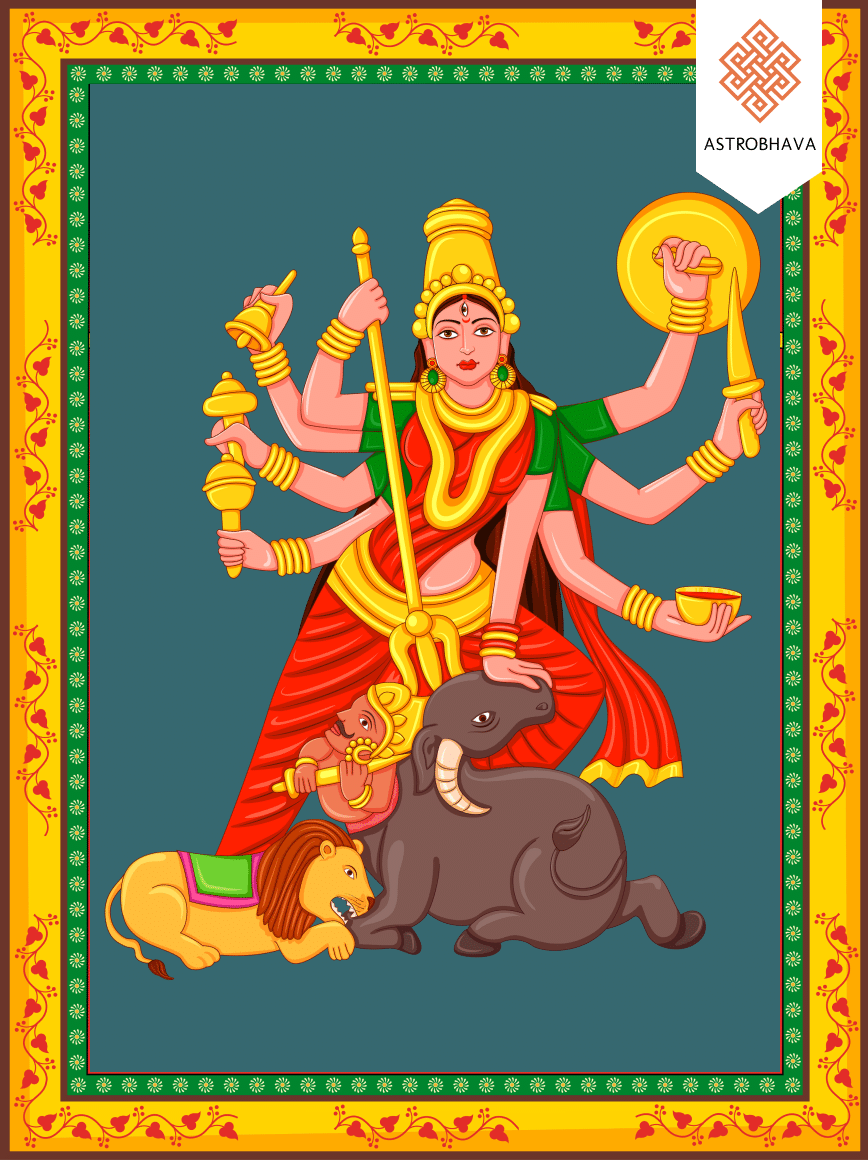
Tritiya Tithi 2025
Tritiya Tithi 2025
Tritiya is the third day in the Hindu lunar calendar, following Pratipada (the first day) and Dwitiya (the second day). Tritiya Tithi is observed twice a month, once during Shukla Paksha (the waxing phase of the moon) and once during Krishna Paksha (the waning phase). This day holds great significance in the Hindu tradition as it is often associated with various rituals, observances, and fasting practices. Particularly, Tritiya is celebrated with rituals honoring divine femininity, strength, and resilience.
Significance of Tritiya
Tritiya has special importance due to its association with auspiciousness and abundance. Traditionally, it is regarded as a day dedicated to honoring deities associated with prosperity and protection. Many worship the divine forms of Goddess Parvati or Goddess Durga on this day, seeking blessings for strength, prosperity, and family welfare. Some of the most celebrated Tritiya Tithis include Akshaya Tritiya, which falls during the Shukla Paksha in the month of Vaishakha and is believed to bring perpetual prosperity.
Tritiya, being the third phase, symbolizes balance and harmony between physical, mental, and spiritual aspects. The day is said to favor activities that involve seeking blessings for personal growth and spiritual awakening. Observing fasts and performing rituals on this day are considered to bring blessings and remove obstacles.
Mantras to Chant on Tritiya
Chanting specific mantras on Tritiya can help align with the day’s energies, inviting prosperity, strength, and inner peace. Here are some recommended mantras for Tritiya:
- Om Shreem Mahalakshmiyei Namah
- Purpose: This mantra is dedicated to Goddess Lakshmi, the deity of wealth and abundance. Chanting this mantra 108 times is believed to attract prosperity and positive energy.
- Suggested Use: Early morning or during Puja, ideally with a focus on abundance and gratitude.
- Om Dum Durgayei Namah
- Purpose: This mantra invokes Goddess Durga, known for protection and strength. Repeating this mantra 108 times is said to provide inner resilience and courage to face challenges.
- Suggested Use: During the Puja or meditation on Tritiya, especially for those seeking strength in overcoming obstacles.
- Om Aim Saraswatyai Namah
- Purpose: This mantra is chanted to honor Goddess Saraswati, the goddess of wisdom and learning. It is particularly beneficial for students or anyone pursuing knowledge.
- Suggested Use: Before starting study sessions, or during morning prayers to enhance focus and clarity.
- Om Parvatyai Namah
- Purpose: This mantra is dedicated to Goddess Parvati and is used to seek blessings for family harmony and happiness.
- Suggested Use: During morning Puja or meditation, with offerings of flowers and sweets to invoke blessings for family well-being.
- Gayatri Mantra
- Mantra: “Om Bhur Bhuvah Swah, Tat Savitur Varenyam, Bhargo Devasya Dheemahi, Dhiyo Yo Nah Prachodayat”
- Purpose: This powerful mantra is suitable for spiritual purification and enhancing one’s mental clarity.
- Suggested Use: Recite in sets of 108, ideally at sunrise, to bring mental peace and spiritual focus.
Tritiya Tithi 2025
| Month | Tritiya Tithi Date and Time (Start – End) |
| January | January 2, 2:24 AM – January 3, 1:08 AM |
| January | January 16, 3:23 AM – January 17, 4:06 AM |
| January | January 31, 1:59 PM – February 1, 11:38 AM |
| February | February 14, 9:52 PM – February 15, 11:52 PM |
| March | March 2, 12:09 AM – March 2, 9:02 PM |
| March | March 16, 4:58 PM – March 17, 7:33 PM |
| March | March 31, 9:11 AM – April 1, 5:42 AM |
| April | April 15, 10:56 AM – April 16, 1:17 PM |
| April | April 29, 5:31 PM – April 30, 2:12 PM |
| May | May 15, 2:29 AM – May 16, 4:03 AM |
| May | May 29, 1:54 AM – May 29, 11:18 PM |
| June | June 13, 3:19 PM – June 14, 3:47 PM |
| June | June 27, 11:19 AM – June 28, 9:54 AM |
| July | July 13, 1:46 AM – July 14, 1:11 AM |
Do’s and Don’ts on Tritiya
Observing the do’s and don’ts of Tritiya can enhance the effectiveness of rituals and align with the auspicious energies of the day.
Do’s
- Engage in Puja and Meditation: Dedicate time to worship and meditation on this day. Set up a simple altar with fresh flowers, incense, and lighted lamps to honor the divine energies.
- Practice Fasting or Restraint: Fasting on Tritiya is a common practice for spiritual growth and physical detoxification. If a full fast isn’t possible, consider a light or partial fast with fruits and milk.
- Chant Mantras: Chanting powerful mantras for prosperity, strength, and protection is especially beneficial on Tritiya. Use beads or a mala to count repetitions.
- Offer Water to Nature: Giving water to plants or near a tree is a respectful way to honor nature, aligning with the energy of abundance and gratitude associated with Tritiya.
- Charity and Acts of Kindness: Giving food, clothes, or financial assistance to those in need on Tritiya is considered very auspicious and helps accumulate positive karma.
- Use Natural Ingredients for Offerings: Prepare offerings with natural ingredients like flowers, fruits, and homemade sweets to preserve the sanctity and purity of the ritual.
Don’ts
- Avoid Non-Vegetarian Food and Alcohol: It is advised to avoid consuming non-vegetarian food and alcohol on Tritiya, as they are believed to diminish the positive energy of the rituals.
- Refrain from Negative Thoughts and Actions: Stay mindful of thoughts and actions, avoiding anger, arguments, or any harmful intentions, as these can disturb the positive energy of the day.
- Limit Unnecessary Spending: It’s generally discouraged to engage in extravagant or unnecessary purchases on this day, as it is better to focus on spiritual activities rather than material pursuits.
- Avoid Cutting Hair and Nails: In traditional practice, cutting hair or nails on Tritiya is seen as inauspicious and is best avoided.
- Minimize Use of Technology: Try to spend less time on electronic devices, using the day instead for introspection, prayer, and connecting with nature.
- Avoid Sleeping During the Day: It’s recommended to stay awake and alert, engaging in constructive or spiritual activities rather than resting excessively, which could reduce the effectiveness of the day’s observance.
Remedies for Tritiya
To fully embrace the energy of Tritiya, one may perform specific remedies. These remedies can be beneficial for enhancing positive energies, removing obstacles, and attracting abundance.
- Chanting and Meditation: Chanting powerful mantras such as the Gayatri Mantra or Durga Suktam on Tritiya is a profound way to connect with divine energies. Spend a few minutes focusing on each word’s vibration to promote inner peace and balance.
- Offerings to Nature: On Tritiya, individuals are encouraged to connect with nature. Offering water to plants, trees, or rivers is a simple way to express gratitude and promote balance within the environment.
- Lakshmi Homa: Performing a homa dedicated to Goddess Lakshmi on Tritiya, especially during Akshaya Tritiya, is known to attract prosperity. This ritual involves offerings to Agni (fire deity) with mantras calling for wealth and abundance.
- Durga Homa: Performing Durga Homa on Tritiya invokes the protective and benevolent aspects of Goddess Durga. This homa is recommended for those seeking protection from challenges and for inner strength.
- Gauri Puja: Worshiping Goddess Parvati or Gauri on Tritiya is believed to bless devotees with familial happiness and a harmonious married life. Gauri Puja is performed by offering fresh flowers, sandalwood paste, and lighted lamps.
- Saraswati Puja: Saraswati Puja on Tritiya is ideal for seeking wisdom and clarity. This Puja involves offering white flowers, incense, and fruits to Goddess Saraswati, inviting blessings of knowledge and learning.
- Om Shreem Mahalakshmiyei Namah: This powerful mantra is chanted to invoke Goddess Lakshmi’s blessings. By performing japa of this mantra 108 times on Tritiya, one attracts positive energy and prosperity.
- Om Dum Durgayei Namah: Chanting this mantra on Tritiya is a way to call upon the strength and protective grace of Goddess Durga. Repeating it in cycles of 108 is believed to offer courage and protection.
Benefits of Tritiya Fasting
- Spiritual Purification and Growth
Fasting on Tritiya aids in cleansing the mind and soul, promoting spiritual growth. By abstaining from food, one directs attention inward, fostering a connection with the divine. This day is auspicious for deep meditation, recitation of sacred mantras, and prayers, enabling a state of heightened awareness and clarity. The practice of fasting allows devotees to focus their thoughts, release negative energies, and purify their spirit, creating a conducive environment for spiritual transformation. - Enhanced Mental Clarity and Focus
Tritiya fasting is particularly beneficial for improving mental clarity and focus. With fewer bodily demands for digestion, more energy is available for cognitive functions, enhancing one’s ability to concentrate. For students and those pursuing knowledge, fasting on this day can bring enhanced focus and mental sharpness. Meditation and mantra chanting are more effective, as the mind is less distracted, enabling deeper insight and reflection. - Inner Strength and Self-Control
Fasting requires discipline and willpower, fostering resilience and self-control. As devotees abstain from indulgences, they learn to transcend immediate desires, strengthening their resolve. Tritiya is associated with deities who embody power and resilience, such as Goddess Durga, whose worship is often accompanied by fasting. By overcoming the urges of hunger, individuals cultivate a sense of control over their thoughts and actions, nurturing a mindset of inner strength. - Promotion of Physical Detoxification
From a health perspective, Tritiya fasting is an effective way to support the body’s natural detoxification process. Without the regular intake of food, the body can rest and focus on eliminating toxins, rejuvenating itself. This gives the digestive system a break, allowing it to flush out waste and rebalance. This physical cleanse can lead to improved digestion, better nutrient absorption, and a general feeling of lightness and energy. - Balance and Harmony in Life
Tritiya symbolizes balance, and fasting on this day encourages harmony in all aspects of life. By observing restraint and dedicating time to spiritual activities, devotees invite a sense of balance between material pursuits and spiritual goals. This day is ideal for setting intentions related to relationships, work, and personal growth, helping to achieve equilibrium. The sense of harmony extends to one’s mind and body, creating a balanced state that helps manage life’s challenges effectively. - Fulfillment of Desires and Goals
Tritiya fasting is believed to attract divine blessings that help fulfill desires and achieve goals, especially when intentions are clear and focused. Many believe that fasting on this day can bring prosperity, happiness, and success. Fasting on Tritiya is often accompanied by the chanting of specific mantras that align with one’s goals, such as mantras for wealth, health, or family happiness. This practice enhances one’s faith and devotion, strengthening their determination to achieve these aspirations with divine support. - Strengthening Family Bonds and Relationships
Observing Tritiya with family members or dedicating one’s fasting intentions to family welfare is said to enhance familial harmony and mutual respect. Traditionally, married women fast on Tritiya, especially Akshaya Tritiya, for their spouse’s well-being and the prosperity of their family. The act of fasting together with loved ones or offering prayers for family members can deepen connections and bring a sense of unity. This observance promotes harmony, understanding, and compassion within the family, blessing relationships with stability and warmth. - Increased Positive Energy and Protection from Negativity
By dedicating the day to fasting, prayer, and worship, individuals invite positive vibrations into their life. Tritiya is considered a day to remove obstacles and enhance one’s aura with divine energy, making it ideal for dispelling negative influences. Fasting aligns with spiritual practices that purify the mind, and worshiping deities associated with Tritiya, such as Goddess Parvati or Durga, is believed to offer protection from harmful energies. This can create a shield against negativity, promoting emotional and mental resilience. - Improved Self-Awareness and Mindfulness
Fasting on Tritiya fosters mindfulness, making individuals more aware of their thoughts, actions, and surroundings. By observing restraint, individuals learn to detach from material comforts and become more introspective. This self-awareness extends beyond fasting, helping them cultivate habits that lead to a more mindful and purposeful life. The day allows devotees to assess their lives and goals, bringing clarity and purpose. Through self-reflection, individuals develop a deeper understanding of themselves, aiding in personal growth and self-discovery. - Attracting Abundance and Prosperity
Observing Tritiya, especially Akshaya Tritiya, with fasting and sincere devotion is believed to bring endless prosperity and good fortune. The day is considered auspicious for beginning new ventures, making investments, or performing acts of charity, all of which are enhanced by fasting. Devotees often pray for abundance in terms of wealth, health, and happiness, trusting that fasting on this auspicious day aligns with divine energies that foster prosperity. This observance encourages a mindset of gratitude and generosity, inviting blessings of prosperity into one’s life.
FAQs on Tritiya
- What is Tritiya?
- Tritiya is the third day in the Hindu lunar calendar, occurring in both the Shukla and Krishna Paksha phases each month.
- What are the main observances on Tritiya?
- Tritiya is often observed with fasting, worship of deities like Goddess Durga or Parvati, and rituals for prosperity and protection. Akshaya Tritiya, a significant Tritiya, is celebrated for its association with perpetual prosperity.
- Is it necessary to fast on Tritiya?
- Fasting is optional but encouraged as a way to deepen spiritual practice and attract blessings.
- Which deity should be worshiped on Tritiya?
- Worshiping Goddess Parvati, Durga, or Lakshmi is common on Tritiya. Each deity offers blessings related to protection, strength, and prosperity.
- What should I eat after breaking a Tritiya fast?
- Light and easily digestible foods like fruits, rice, and milk are generally recommended after breaking the fast.
- What mantras should I chant on Tritiya?
- Common mantras include “Om Shreem Mahalakshmiyei Namah” for prosperity and “Om Dum Durgayei Namah” for protection.
- What are the best times for Tritiya Puja?
- Performing Puja during Brahma Muhurta (pre-dawn) or in the morning hours is considered auspicious on Tritiya.
- Is Akshaya Tritiya different from other Tritiyas?
- Yes, Akshaya Tritiya is considered especially auspicious for beginning new ventures, buying gold, and performing charity, as it is associated with unending prosperity.
- Can children observe a Tritiya fast?
- Fasting can be modified for children by avoiding full fasting and instead encouraging them to eat simple foods like fruits.
- Why is Tritiya important for married women?
- Tritiya, especially Akshaya Tritiya, is believed to enhance marital happiness, family harmony, and overall prosperity, making it significant for married women.
- Can I perform Tritiya rituals at home?
- Yes, Tritiya rituals can be done at home by setting up a simple altar, offering fresh flowers, lighting lamps, and chanting prayers.
- Are there specific colors associated with Tritiya?
- White and yellow are often chosen as they symbolize purity and auspiciousness.
- How long should I chant the Tritiya mantras?
- Reciting the chosen mantra in sets of 108 repetitions is recommended for maximum benefits.
- Can Tritiya fasting be done for specific goals?
- Yes, fasting and rituals on Tritiya can be done with intentions, such as family well-being, prosperity, and protection.
- What offerings are suitable for Tritiya Puja?
- Offerings typically include flowers (especially marigolds and roses), sweets, and lighted diyas (lamps) made from ghee or oil.
By observing Tritiya with fasting, prayer, and rituals, one aligns with the day’s sacred energy, which is believed to enhance spiritual growth, prosperity, and inner strength. Observing Tritiya in this manner encourages not only the pursuit of personal goals but also cultivates a deeper understanding of one’s connection with the divine.







